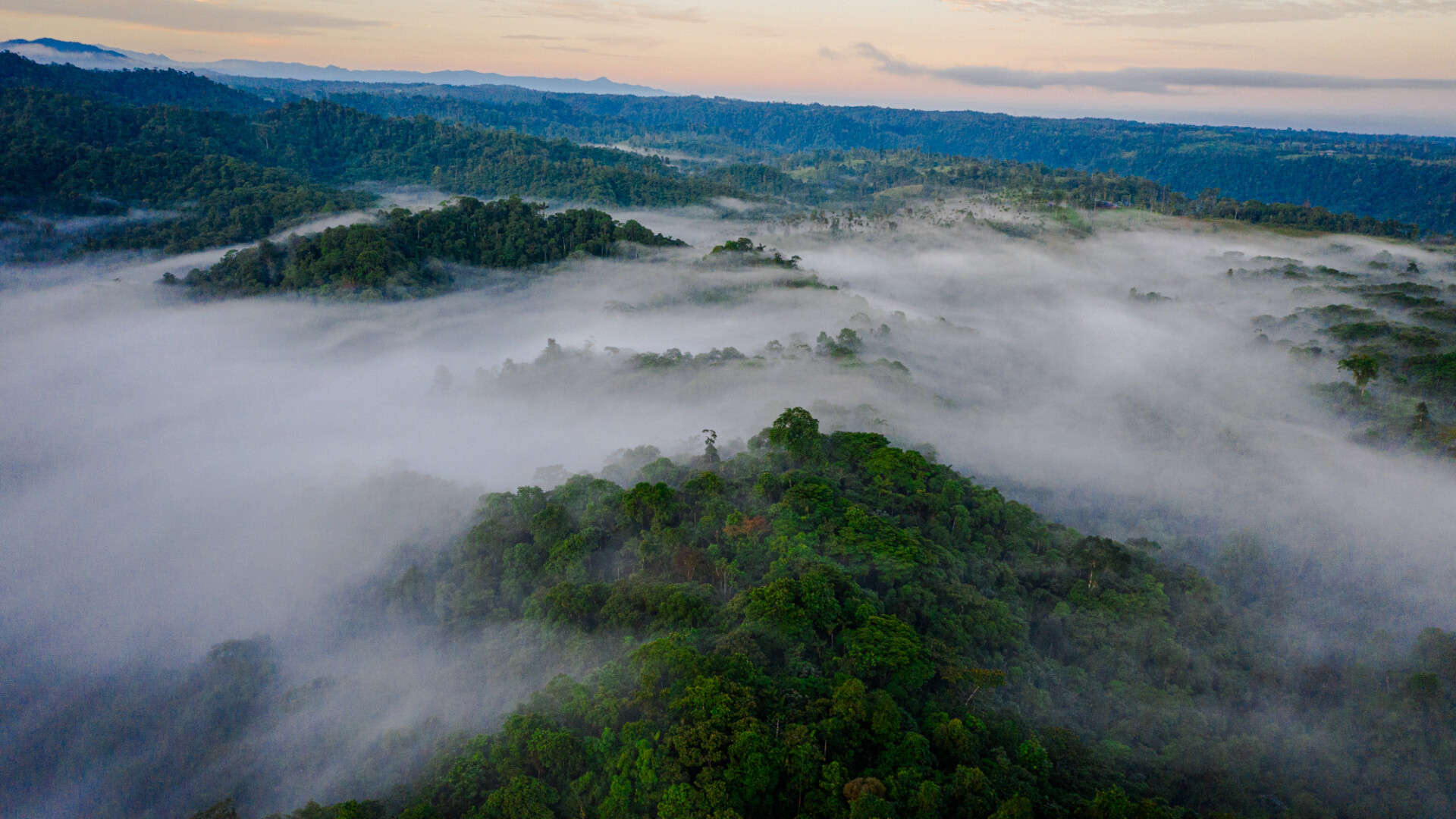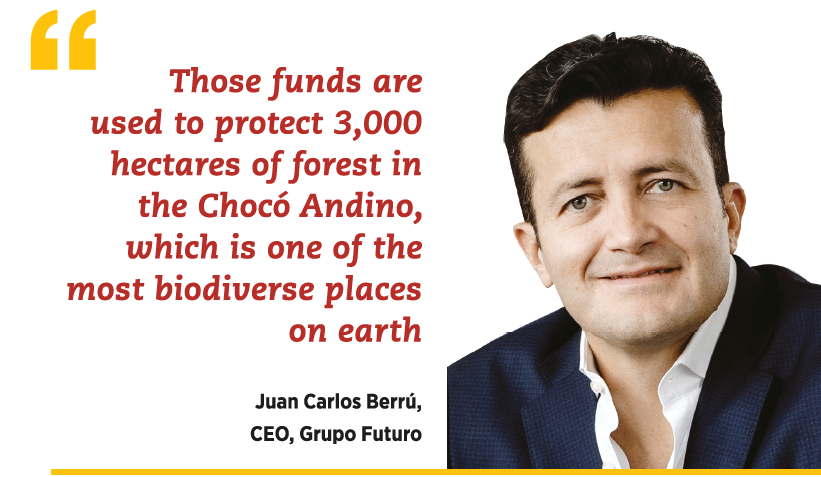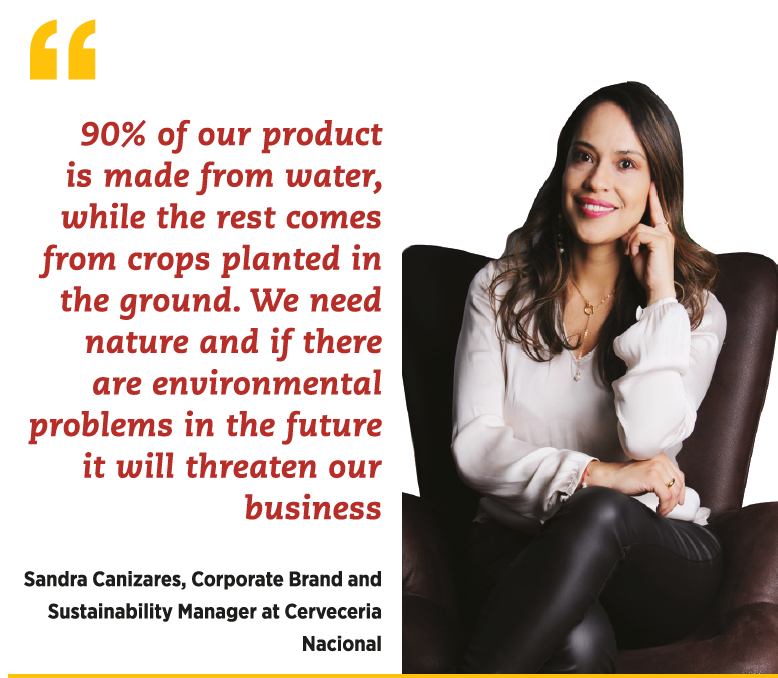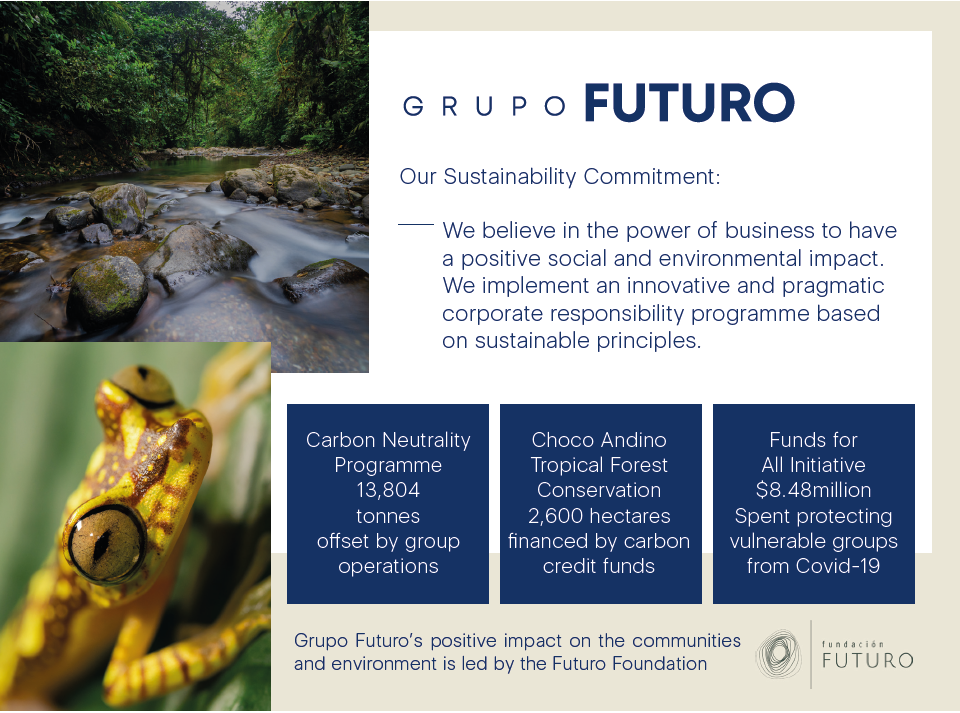Natural capitalists
Innovative corporations are using Ecuador’s incredible environmental endowment to pioneer a new form of sustainable business…

Conservationists see Ecuador’s unique natural beauty as something that must be protected. That thinking has dominated the current government’s push to increase land and sea conservation areas. Without doubt the country has a duty to protect incredible jungle and marine habitats. But Ecuador, a poor country with a rapidly-expanding population of 16 million mouths to feed, can’t survive by just closing off swathes of its territory. It needs to find a sustainable way to develop that natural capital. A small, but significant, minority of Ecuador’s leading companies are doing just that.
The success of Ceres, a chamber, based in Quito, that works with environmentally and socially-responsible Ecuadorian companies, shows the growth in sustainable business models. “We are a non-profit organisation that began 17 years ago with the idea of promoting responsible development”, says Evangelina Gomez-Durañona, Executive Director, Ceres. We now have 85 members, made up of public entities, private-sector companies, academic institutions and NGOs. Our main focus is the private sector but we realise that we need to include all key stakeholders to achieve our goal of making sustainable development a reality in Ecuador. Some of our members are multinational companies that are bringing the best sustainable practices from abroad. We also have local companies that were created with sustainability in their DNA.”
One local corporation built on Ecuador’s unique natural capital is Grupo Futuro, an insurer founded in 1973. “Sustainability is one of our core values. It isn’t something additional that has been added on to the business, but an integral part of what we do. From the very beginning, Grupo Futuro hasn’t been a company that just focuses on profit – we have always looked at creating a positive environmental and social impact”, says CEO Juan Carlos Berrú.
By the late 1990s Grupo Futuro was the largest Ecuadorian insurance company and was ready to diversify. “The philosophy behind this diversification was the ‘Estrategia del Sol’, (Strategy of the Sun), which makes the most out of the country’s unique geographic and climatic conditions”, says Berrú. Ecuador is the only country in the world that lies upon the equator and enjoys such topographical and climatic variety. As a result, we benefit from unique conditions that give us important competitive advantages in various industries."

“One of these sectors is tourism, where Ecuador benefits from consistent warm weather throughout the year. So, Grupo Futuro bought Metropolitan Touring, which was the largest tourism operator in Ecuador, and began to develop leading boutique hotels in Ecuador’s unique destinations. For example, Mashpi Lodge is an expedition hotel in the Ecuadorian rainforest that has featured in National Geographic. We also have exciting destinations in the Galapagos, an ecosystem that no other country in the world possesses.
“The diversification continued, always following the Strategy of the Sun. So, we focused on agricultural exports, making the most out of a climate that allows us to grow a wide variety of crops all year long. That means we can take advantage of windows in the northern and southern hemisphere, where those markets need to import. We have also begun a global logistics operation that aims to benefit from Ecuador’s prized location.
“Ecuador has incredible potential in developing new, high-value crops. So far, Grupo Futuro is growing berries and avocados. They are superfoods with important nutritional benefits. Ecuador is the perfect place to grow them because the angle of the sun on the equator, plus the consistency and radiation, means creates sweet, high-quality fruit. Meanwhile the range of altitudes in Ecuador, gives farmers a mix of different temperatures and soil qualities to grow different fruit and vegetables.”
The success of Grupo Futuro shows that Ecuador’s natural capital is a tangible competitive advantage. Another example comes from Cerveceria Nacional an Ecuadorian subsidiary of the giant global brewer, AB InBev. “In other countries, beer producers face challenges about water supply. Here in Ecuador, water is abundant, however, we must take care to ensure the quality of water is protected”, says Sandra Canizares, Corporate Brand and Sustainability Manager at Cerveceria Nacional. “The reason Cerveceria Nacional puts so much emphasis on sustainability is that 90% of our product is made from water, while the rest comes from crops planted in the ground. We need nature and if there are environmental problems in the future it will threaten our business. That reality has forced us to become leaders on sustainability because it impacts our core business.”
Sustainability 3.0
As opposed to the older idea of closing off environmentally-sensitive areas to protect them from harmful economic activity, Grupo Futuro uses technology to put an economic value on natural capital.
“All the group’s companies have been certified as carbon neutral”, says Berrú. “So, we measure the impact of each company on the environment and then each leadership team takes steps to reduce their business’s emissions. Of course, some emissions can’t be cut, so those emissions are offset. Depending on the size of its emissions, each business in the group pays into a special carbon offsetting trust that Grupo Futuro established. Those funds are used to protect 3,000 hectares of forest in the Chocó Andino, which is one of the most biodiverse places on earth. That money pays for conservation, including guards to make sure there are no encroachments by illegal loggers, plus we fund social programmes in the area that allow communities there to earn a decent lifestyle in sustainable businesses. The social programmes help to prevent the mass migration to the cities, as we provide education schemes and economic opportunities."

"The model is now so well established that we are developing a mechanism to allow other companies, outside of Grupo Futuro, to use it to offset their emissions. Another innovation, is ‘NFTrees’. We are using a platform of eight Web 3.0 technologies – including non-fungible tokens (NFTs) to create a product that will allow consumers to measure their carbon footprint then offset it by buying an NFTree that protects part of the Choco Andino.”
Cerveceria Nacional is also finding tech solutions to mitigate its impact. “We implement best practices to ensure that our water efficiency at the plant is as low as possible”, says Canizares. “Moreover, we have a target to reduce our carbon footprint by 30% by 2025. At the close of 2021 we had already made a reduction of 17%. We are working strongly on a circular economy, which gives second life to waste produced by our core purpose – making beer. One example of that is malt, which produces bagasse when it is burnt to make beer. We can use this residue to make a feedstock for animals. Meanwhile the paper that is washed from our recycled bottles can be turned into packaging for egg boxes. Indeed, we have just signed a deal with Grupo Familiar, a large paper company here, to make toilet paper from our waste.”
Costly?
The traditional business argument against these sustainable measures is expense yet Berrú believes that, in the long-run, they can future-proof a company’s profits. “There is a global trend where companies and consumers are more focused on environmental and social impacts. Businesses that don’t take sustainability seriously won’t be profitable and will disappear. Consumers want their purchases to have positive social and environmental impacts. That is especially true of the younger generations, that identify more with brands that have a clear proposition. So, although sustainability might cost more money in the short-term it is the only way to guarantee the longevity of your business in the long term.
“Take our logistics business for example. Logistics is a competitive business where small margins count but leading logistics operators now must let their clients know about the carbon footprint of each operation. Our logistics centre will be a low-carbon site, with solar panels on the roofs of the warehouses. Yes, that costs more, but for certain logistics firms it is a must.”
Canizares also notices a growing demand for sustainable products in the local market. “The pandemic accelerated many things around the world, including sustainability in Ecuador. Distributors and clients have started to become more conscious of sustainability and we need to respond.”
Of course, large companies like Grupo Futuro or Cerveceria Nacional can afford to make upfront investments in sustainable measures and wait to receive the long-term benefits. That is harder for smaller Ecuadorian companies.
“In Ecuador’s private sector you have a small percentage of the top companies who have impressive sustainability programmes but that isn’t the case with 95% of Ecuadorian small-to-medium enterprises (SMEs)”, says Yolanda Kakabadse, a leading Ecuadorian environmentalist working with organisations like WWF International and the Charles Darwin Foundation. “Unless the large companies can influence their suppliers and customers, they won’t manage to make the country more sustainable. The key is communication and knowledge sharing. If your clients up and down the chain aren’t being sustainable it isn’t because they are bad but because they are ignorant. You have to educate them and inspire environmental awareness.
“There is a misperception that sustainability is something only large companies can afford but when you look at the environment in its broadest sense you realise that protecting it is a right, not a privilege”, says Kakabadse. “Protecting the environment means clean drinking water, proper waste management systems, healthy food and beautiful schools and libraries. When people understand it in those terms then they think: Yes, I deserve a better quality of life.”

Gomez-Durañona, from Ceres, agrees that SMEs are the next frontier of sustainability in the Ecuadorian private sector. “At the moment it tends to be the larger, sophisticated companies here that focus on sustainability. Smaller firms don’t have the resources or technical capabilities to be sustainable. It is like Maslow’s hierarchy of needs. SMEs in Ecuador are fighting to survive day to day so they can’t invest in long-term sustainable standards. We need to help them get there. One way larger companies, like our members can do that, is by offering support to the supply chain to be sustainable.”
Ecuador is small country by South American standards but it is crammed full of natural resources. As environmental consciousness grows, successful companies – local or international – will use emerging technology to find a sustainable way to place a value on Ecuador’s natural capital.